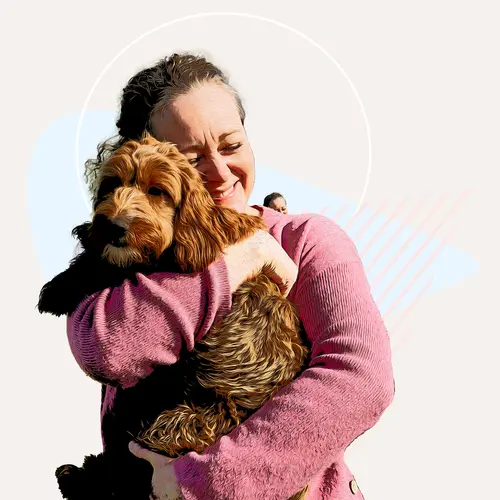Dogs and people have shared their lives for thousands of years. People have guided the development of dogs to suit their needs. As humans developed into a more cultured species, dogs followed along. Dogs became more domestic and turned into a staple in people’s lives. Today, many canine companions are considered family members.
One of the best things about having a dog is choosing a breed that fits your personality and lifestyle. But because there are so many options, it can be tough to make a decision.
6 of the Most Popular Dog Breeds
French Bulldog. Quiet, stout, and affectionate, Frenchies are now ranked by the American Kennel Club as the No. 1 most popular dog in the U.S. Frenchies love their people and make enjoyable companions. Their coats come in a wide variety of colors and markings. They were bred from bulldogs and miniaturized somewhere between England and France. Frenchies were intended to be companion dogs instead of working dogs, but they love to play.
Frenchies are excellent urban and city dogs because they don’t require a lot of activity. They have relatively low levels of energy and prefer to be on a couch somewhere near their human.
Their short noses can make it tough for them to breathe at times, and they shouldn’t be out in the hot weather because they overheat easily.
Labrador Retriever. Labradors are known for their kind nature and great behavior with kids and families. They generally have high intelligence, which makes them easy to train. Initially bred for sporting, they have an athletic nature and are always ready to play or work.
Labs have a high level of energy. For this reason, they need a lot of exercise or they can become bored and get into trouble. Owners should brush their Lab weekly, but during shedding time, they might need a brush daily.
Labrador retrievers should eat a diet designed for their age and activity levels. Labradors are at risk of developing hip or elbow dysplasia, bloat, and some heart and eye conditions. If you choose a Lab, make sure you regularly take them to your veterinarian for checkups.
Golden Retriever. Named for its coat color, the Golden Retriever is a highly intelligent dog capable of performing many tasks. As a family dog, the breed is known for its gentle and playful nature. Bred for hunting and field work, Goldens also live to please their people.
Goldens have a high energy level that comes with a need for lots of activity. Walks, swimming, playtime, and lounging time with their humans keep Golden Retrievers in good shape and entertained. Like with other dogs, Goldens just need a diet that's appropriate for their age and activity level to stay healthy and active.
Owners should make sure they regularly take their dog to the veterinarian for checkups to identify any health problems, as dysplasia can be a problem.
German Shepherd. Another well-loved breed, German Shepherd Dogs (GSDs) are popular for many reasons. They're easy to train. These dogs are quick to learn commands and are gentle around their friends and loved ones. They do best when they are trained and can get rewarded for assignments.
GSDs don’t require frequent bathing but should be brushed once a week — more if it is shedding time. Shepherds need a good amount of exercise because they are athletic dogs. They have a moderately high level of energy and excel at mental and physical tasks. Like most dogs, they can gain too much weight if they eat more than they should.
Poodles. One of the most intelligent dogs around, Poodles have been stereotyped as dogs with an ear towards doggy stardom. Poodles began as working dogs, retrieving game from the cold waters in Germany.
Poodles have moderately high levels of energy and require exercise for good health. Like most medium-sized and larger dogs, the poodle can develop hip dysplasia. Smaller variants can develop some joint problems in their legs. Overall, the Poodle has had many health problems bred out. Poodles make excellent companions and are easy to train.
Bulldog. A list of favorite dogs isn’t complete without the Bulldog. Easily recognizable, the Bulldog was bred down from dogs used for bull-baiting (killing bulls for sport) after the activity became illegal. Bulldogs are now gentle and lovable family pets for many households.
Bulldogs have a moderately high level of energy and should be walked for exercise. They are not very good swimmers, so wading in shallow water is all they should be allowed to do in the water on their own.
Like the Frenchy, Bulldogs can gain weight very quickly, so they need to be kept on a diet that's appropriate for their activity level and age. Hot and humid weather is also not good for the Bulldog because their short snouts make it hard to breathe in the heat.
What to Consider When Choosing a Breed
Potential Health Issues. When you're choosing a breed, it's important to take into consideration the health problems they are prone to. Large and medium-sized dogs can develop hip dysplasia and bloat among other conditions. Smaller dogs can have breathing problems or problems with their knees and heart.
Living Space. Think about the environment you're in when choosing your dog breed. Small apartment complexes may not be the best for large or loud dogs. They need more room to move around. Small dogs might be more vocal and irritate close neighbors. If you're not home often, you'll have to have someone to care for your dog.
Time and Attention. Consider the amount of attention you plan on giving to your pooch. If you need a dog that likes to cuddle on your lap, large dogs might not be a good choice. Above all, commit to your pooches health and establish a relationship with a veterinarian you trust. Purchasing pet insurance can help you cover unexpected health problems.


